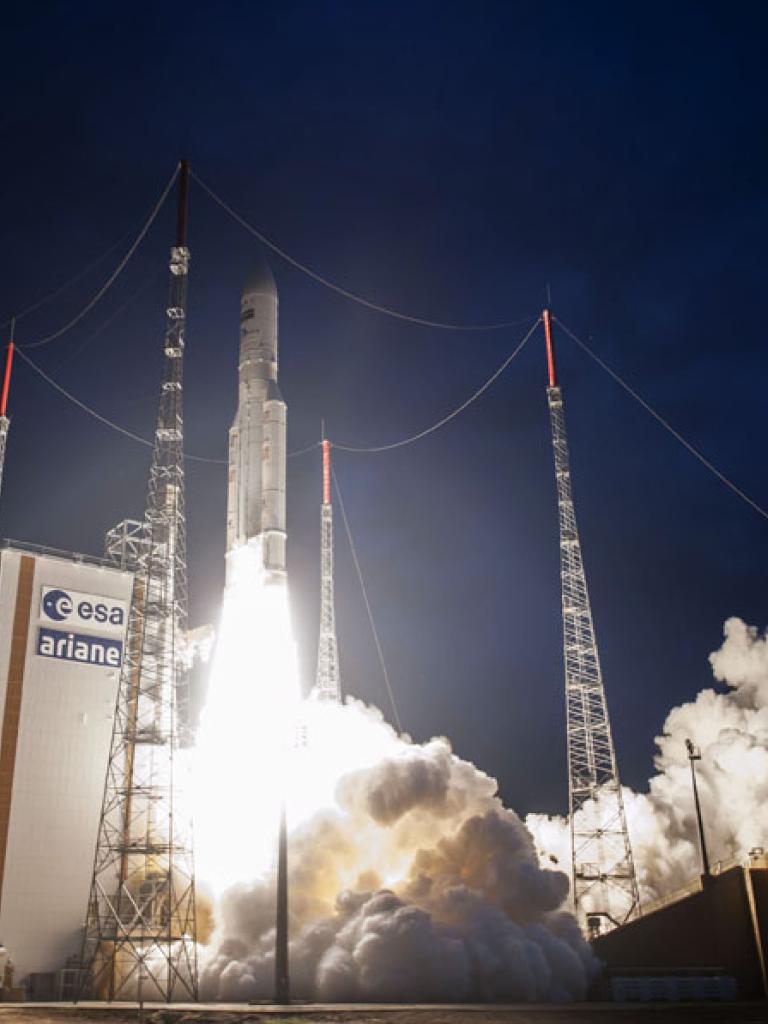
MSG-4 successfully launched


At 23:42:07 CEST (18:42:07 Kourou time) on 15 July 2015, MSG-4, the last in the MSG series of geostationary satellites, was successfully launched from Kourou, Europe’s Spaceport in French Guiana, on an Ariane-5 launcher.
05 November 2024
16 July 2015
Alain Ratier, EUMETSAT’s Director-General, said, “With MSG-4 en route towards geostationary orbit, we are preparing for a safe and smooth transition to Meteosat Third Generation . After commissioning, MSG-4 will be stored in orbit for 2.5 years, and will then be exploited until two MTG-I satellites become operational in orbit, in 2023.”
The Meteosat services from geostationary orbit cover the European and African continents and parts of the Atlantic and Indian oceans. The Meteosat satellites also provide a unique observational input to Numerical Weather Prediction models, complementing the primary inputs delivered by the polar-orbiting Metop satellites. The satellites have already accumulated climate data records of more than 35 years.

The EUMETSAT Director-General congratulated Arianespace and the ESA and CNES teams at the Guiana Space Centre in Kourou for another success of Ariane and for the excellence of the launch service. He also thanked all the teams which prepared the satellite and ground systems for launch, from EUMETSAT, ESA, the European industrial consortium led by Thales Alenia Space, which built the satellite, and from the Rutherford Appleton Laboratory which delivered the GERB instrument.
"Storing the satellite in orbit after launch and commissioning will save costs"
"Storing the satellite in orbit after launch and commissioning will save the additional costs of ground storage, de-storage and re-testing of the satellite. This will also ensure the satellite is immediately available to replace one of our ageing MSG satellites, whilst preserving the operational lifetime of MSG-4” Ratier concluded.
MSG-4 is the last of the MSG satellites resulting from the successful cooperation model with the European Space Agency (ESA). ESA is responsible for the development of satellites fulfilling user and system requirements defined by EUMETSAT and for the procurement of recurrent satellites on its behalf. EUMETSAT develops the ground systems required to control the satellites, acquire and process their data and deliver products and services to users, in response to their evolving needs. EUMETSAT also procures all launch services and operates the full system for the benefit of users.
All MSG satellites are manufactured by a European industry consortium led by Thales Alenia Space.

